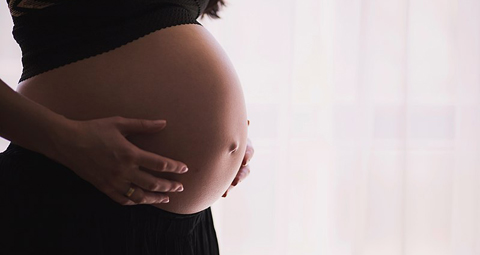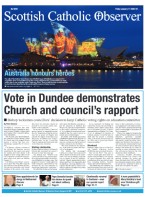BY Peter Diamond | October 18 | ![]() 0 COMMENTS
0 COMMENTS ![]() print
print

Church compares surrogacy to human trafficking
The Catholic Church has questioned whether surrogacy is ‘any better than human trafficking’ as it responded to a consultation looking at reforming the law around the process.
The Church, which opposes surrogacy in principle, said the Law Commission consultation failed to ‘fully take into account the possible views and emotional and psychological harm of children brought into the world through surrogacy.’
Surrogacy in the UK is an arrangement whereby a woman agrees to become pregnant and give birth to a child for another person who will become the parent of the child.
In the UK Surrogacy agreements are not enforceable law between parents and surrogates, even if signed documents between surrogates and parents exist. You cannot legally pay a surrogate in the UK, except for reasonable expenses.
Payment
However, in the US and other countries such as India, Russia and Ukraine commercial surrogacy exists where parents will pay upwards of $100,000.
The Catholic Church in Scotland said the ‘commercialisation of pregnancy… comodifies women and children.’
The proposed reforms suggest that UK courts should have the power to dispense with consent of the surrogate in any circumstances, a move the Church opposes.
In his response on behalf of the Church, Anthony Horan, director of the Catholic Parliamentary Office, said: “The right of the surrogate to consent to the transfer of legal parenthood to the intended parents is a fundamental safeguard which protects the rights of the surrogate as the biological and legal mother of the child.”
Celebrating life
However, the Church also stated that its opposition to surrogacy in no way compromises ‘her love for every human being.’
“The Church celebrates all life, including those born through surrogacy,” the response says. “Their dignity and value as a human being made in the image and likeness of God is without question.”
The Church also expressed concerns over the emotional and psychological impact of both the surrogate especially during the ‘loss’ of her baby and the lasting effects on her body and mind.
“The process of surrogacy reduces children to mere objects, who may discover later in life that they were the product of a surrogacy arrangement and that they do not know one or more of their biological parents,” the response says.
“They become commodities to be created (and potentially purchased) to satisfy the desires of other human beings. Begging the question; is surrogacy any better than human trafficking?”
The consultation closed for submissions on October 11.










